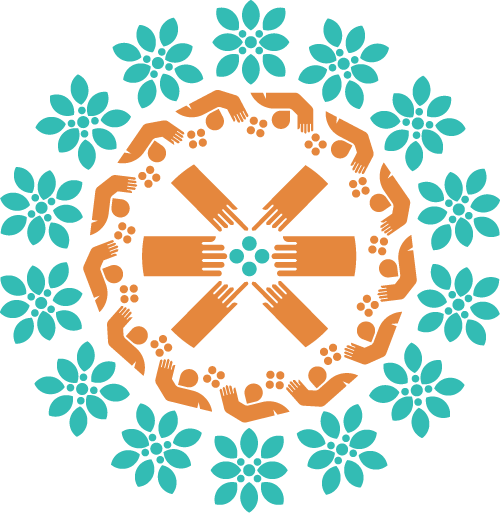
Who we are
The Mesoamerican Territorial Fund (FTM) is an alternative financial mechanism designed by the Mesoamerican Alliance of Peoples and Forests (AMPB), by and for Indigenous Peoples and Local Communities (IPLCs).
Our objective is to promote rights-based, efficient and effective direct investment in key Mesoamerican territories while ensuring lower transaction costs and management of funds according to clear protocols and accountability.
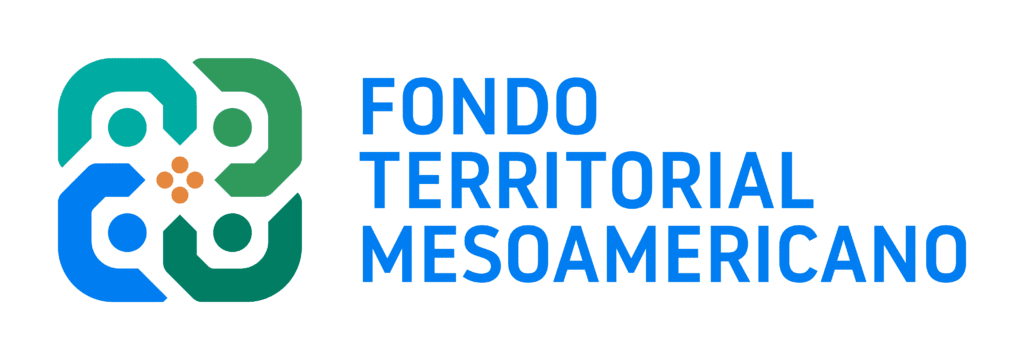

AMPB Members
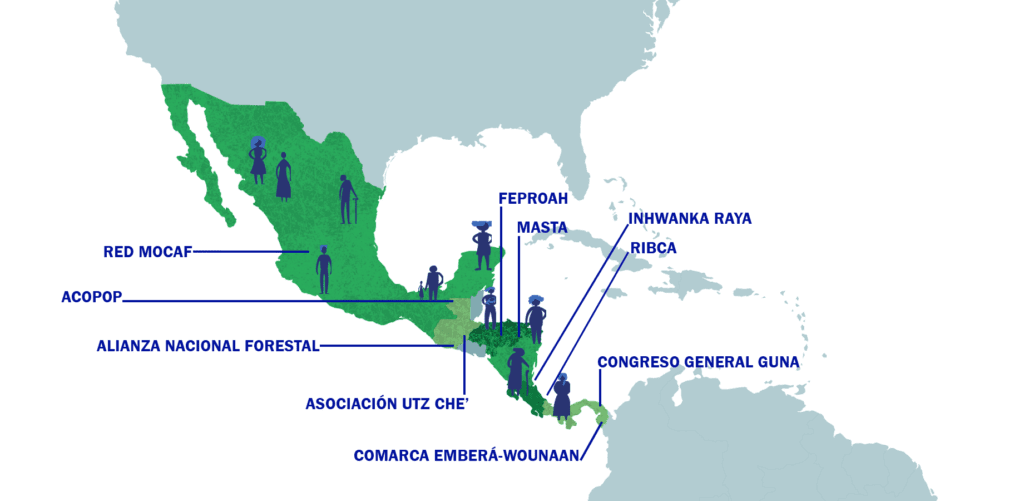
The FTM focuses its work in Mesoamerica, working closely with the membership of the AMPB and other Indigenous Peoples and Local Communities organizations (IPLCs).
Rationale

According to a study conducted by Rainforest Foundation Norway1, by 2021, less than 1% of global climate finance has reached Indigenous Peoples and Local Communities (IPLCs) in the global south over the last ten year.
In response to this situation, the FTM, was created with the objective of facilitating and promoting direct territorial investment in favor of Indigenous Peoples and Local Communities (IPLCs).
Likewise, the FTM seeks to accompany the organizations in a culturally adapted manner, through the creation and strengthening of capacities, promoting sustainability and positive impacts on the investment.
1. 2021. Rainforest Foundation Norway. Falling Short: Donor funding for Indigenous Peoples and local communities to secure tenure rights and manage forests in tropical countries (2011–2020).
By 2028 the FTM aims to:
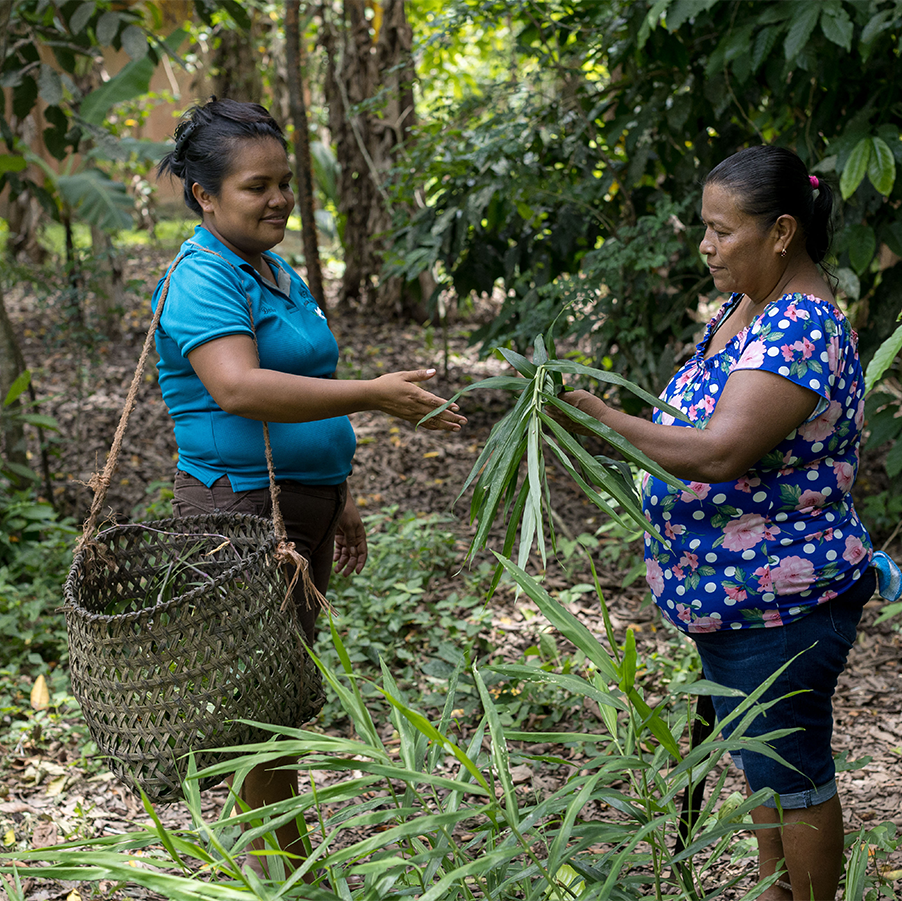
Increase direct funding to an annual average of 30 to 40 donations with amounts starting at USD 50 thousand.
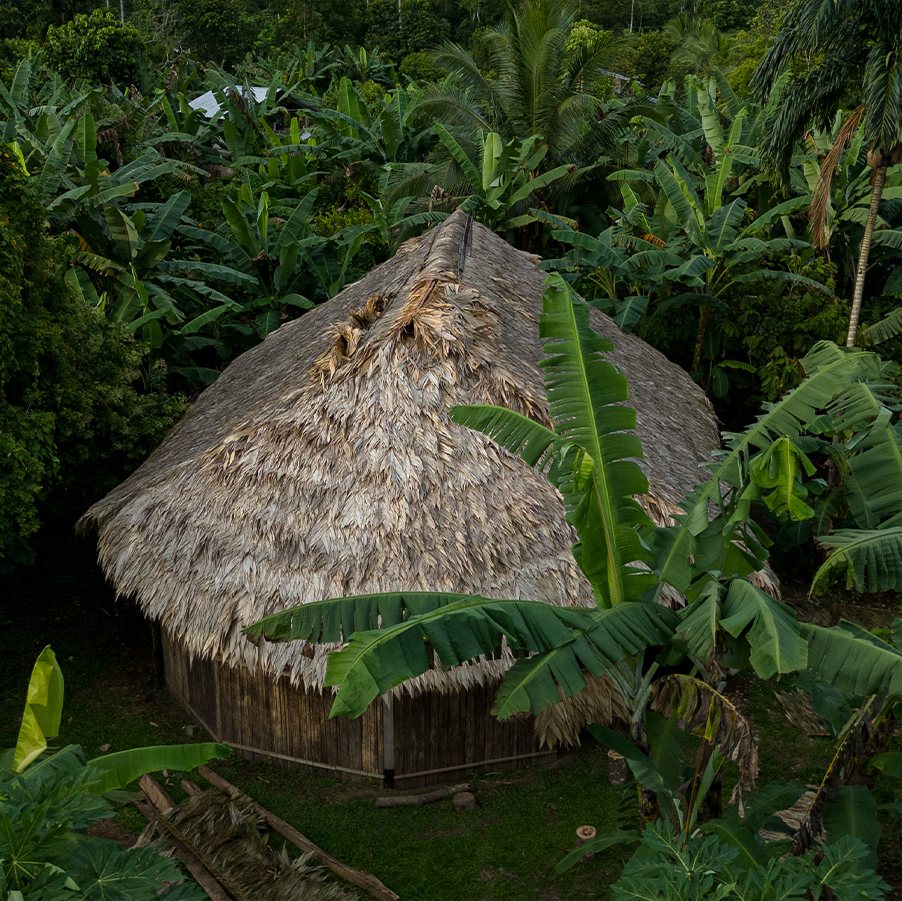
Extend the geographical areas and territories prioritized by the FTM, involving more partners and strategic allies and expanding its support to other organizations beyond the AMPB membership.
A process that has already begun:
How we work?

FTM is governed by a 7-person Board of Directors*, composed of:
FTM Organizational Chart
Board of Directors
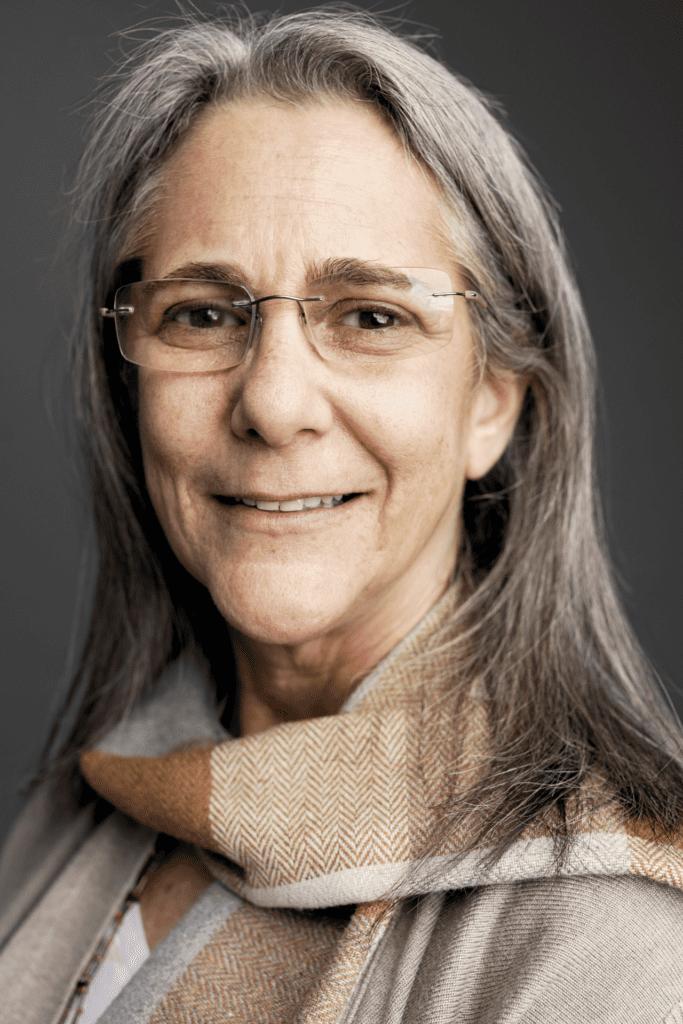
Susan Kandel
Susan Kandel is the Deputy Director and a senior researcher of PRISMA.
She holds a B.A in Sociology, a M.A. in Regional and International Development from the University of California, Los Angeles (UCLA), and post-graduate studies in both Sustainable Resource Development from UC Berkeley, as well as in International Human Rights from the International Institute of Human Rights in France.<br>.<br>
Ms. Kandel’s areas of expertise include: Territorial governance and rural development; Climate Change and adaptation based mitigation; Migration, development and natural resource management; among other relevant topics. Before working at PRISMA, Ms. Kandel was the Director of the Human Rights Department of a Central American Refugee Center located in Los Angeles and Project Coordinator of the Index to Accountability, which directly informed the work of the UN-mandated Ad Hoc and Truth Commissions of El Salvador as part of the Peace Accords process.
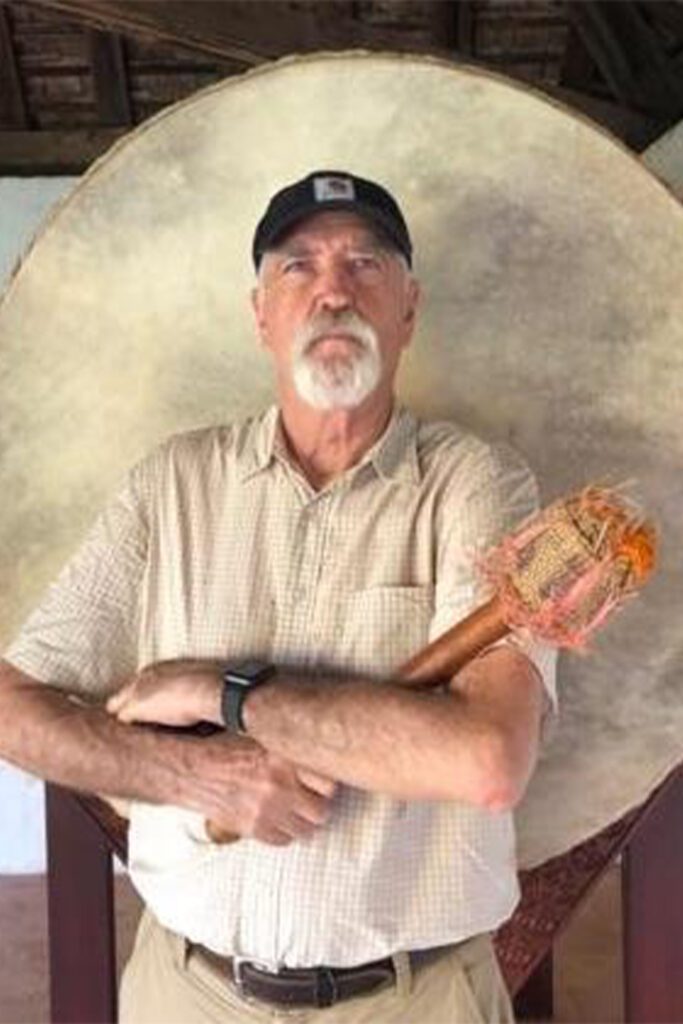

Jeffrey Campbell
Currently retired in the US after over thirty years of experience in the empowerment of communities in landscapes.
Work experience in the United Nations (FAO) as Manager, The Forest and Farm Facility, philanthropy (The Christensen Fund, Ford Foundation), bilateral assistance (AAAS/USAID), university extension (University of Connecticut) consulting (Winrock International, FAO), advisor/board member (PROFOR, RECOFTC, NFP Facility..).
Focused on Forest and Farm Producer Organizations, Community Forestry, Forest Policy, Biocultural diversity and Food Sovereignty, Indigenous Peoples Empowerment, Landscape-based Rural Livelihoods, Sustainable Development and Resilience and Adaptation to Climate Change.
Also publish poetry, perform and record music as jhaffur khan azad darakth, co-founder and composer with Orchestra naiF.
Born and raised in India, husband, father and grand-father.
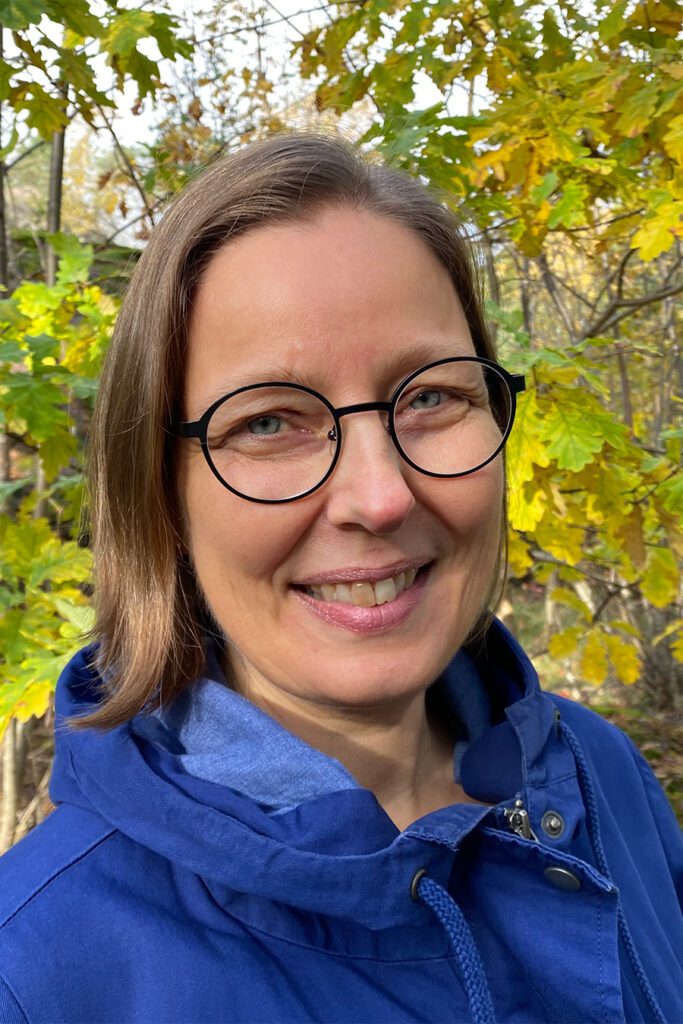

Kirsi Chavda
Kirsi Chavda is a programme coordinator at Siemenpuu Foundation, where she has supported Civil Society Organisations (CSOs)
in several African, Asian and Latin American countries in varied environmental themes, including community-based forest conservation and sustainable use, as well as food sovereignty.
Currently Ms. Chavda manages Siemenpuu’s programme on Feminist Agroecology and Community Forests with partners in Liberia and Mozambique.
Ms. Chavda has experience in the field of development cooperation from varied angles. At the UN Population Fund, UNFPA, she focused on sexual and reproductive health and rights themes in Honduras for two years.
At the Finnish CSO Kepa’s country office in Nicaragua, she contributed to the strengthening of the civil society, awareness on the impacts of extractive industries and territorial governance in Mesoamerica for three years.
Ms. Chavda holds a MSSc. in both Social Policy and Social Work from the Universities of Eastern Finland and Jyväskylä.
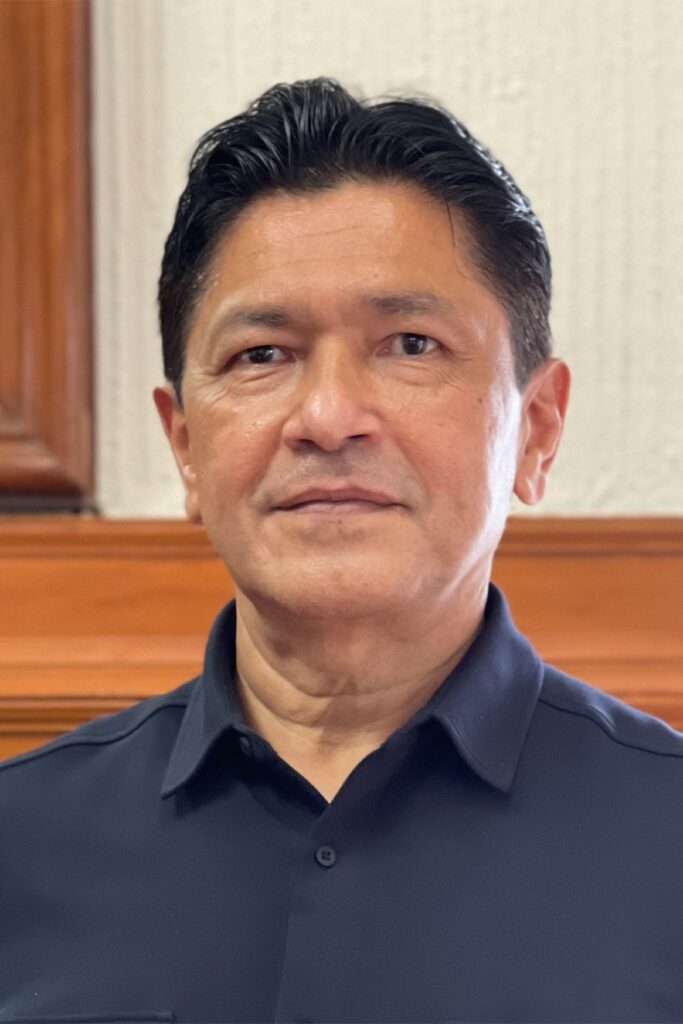

Gustavo Sánchez Valle
Gustavo Sánchez is originally from the State of Jalisco in Mexico, he is an Agricultural Engineer with a Specialist in Agricultural Economics
from the Autonomous University of Chapingo (UACh) and has a Master’s Degree in Regional Rural Development from the same university.
He has specialized in strengthening forest community organizations by supporting communication activities, representation, project management, design of public policy proposals and participation in international spaces on behalf of indigenous organizations and local communities.
He is currently President of the Mexican Network of Peasant Forest Organizations (MOCAF Network), a network of forestry organizations, both indigenous and local communities, and is part of the board of directors of the Mesoamerican Alliance of Peoples and Forests (AMPB); of the Resources and Rights Initiative (RRI) and the Community Land Rights and Conservation Finance Initiative (CLARIFI).
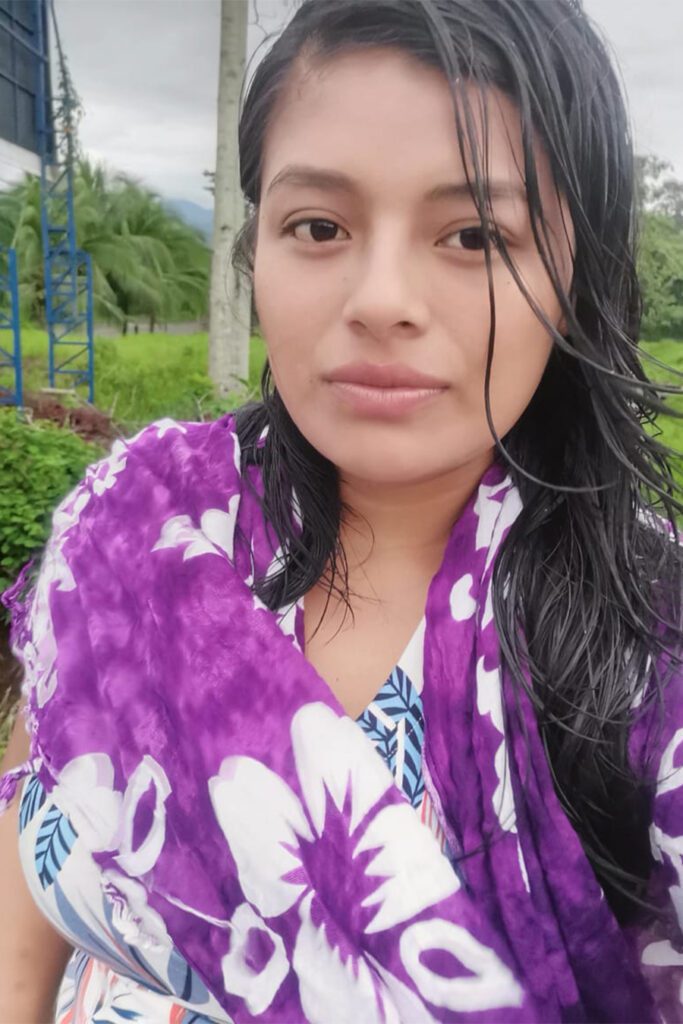

Sara Madriz Martínez
Sara Madriz Martínez, a Costa Rican Cabécar indigenous woman, is currently Spokesperson 1 and Youth Coordinator
of the Association for the Integral Development of the Cabécar de Nairi Awari Indigenous Reserve (ADIRINA) in Pacuarito Siquirres, Costa Rica, one of the organizations that is part of the Bribri-Cabécar Indigenous Network (RIBCA), a group of eight indigenous territories in Costa Rica.
She is also Vice President of the Board of Directors of the Mesoamerican Alliance of Peoples and Forests. With more than 6 years of experience in the defense of indigenous rights and the preservation of indigenous culture.
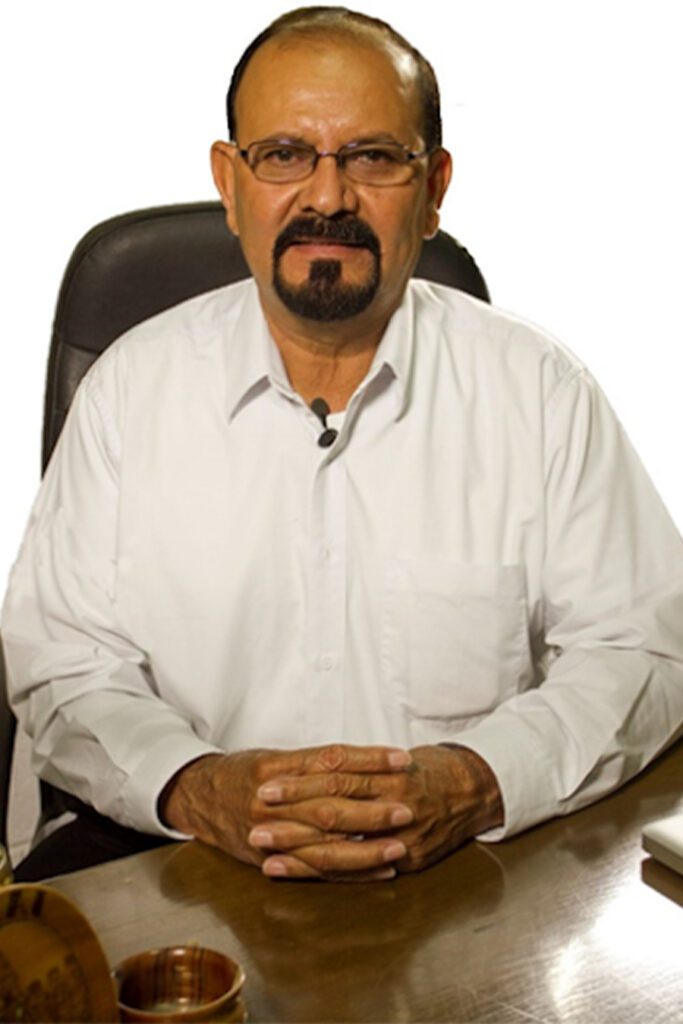

Marcedonio Cortave
Marcedonio Cortave, Founder and Executive Director of the Association of Forest Communities of Petén (ACOFOP)
in Guatemala, has achieved personal and institutional successes, being an emblematic icon in the organization and conservation of the natural and cultural resources of the Peten region.
Under his leadership, ACOFOP has earned nationally and internationally recognized awards and achievements in conservation through the participation of organized civil society in the management of natural resources. Mr. Cortave’s vision is that, “To sustain the forest, communities must first be sustained and consolidated”. That is why his trajectory for the benefit of all Guatemalans has allowed him to receive the academic degree of Doctor Honoris Causa granted by the Faculty of Agronomy of the glorious and three-hundred-year-old University of San Carlos de Guatemala (USAC).
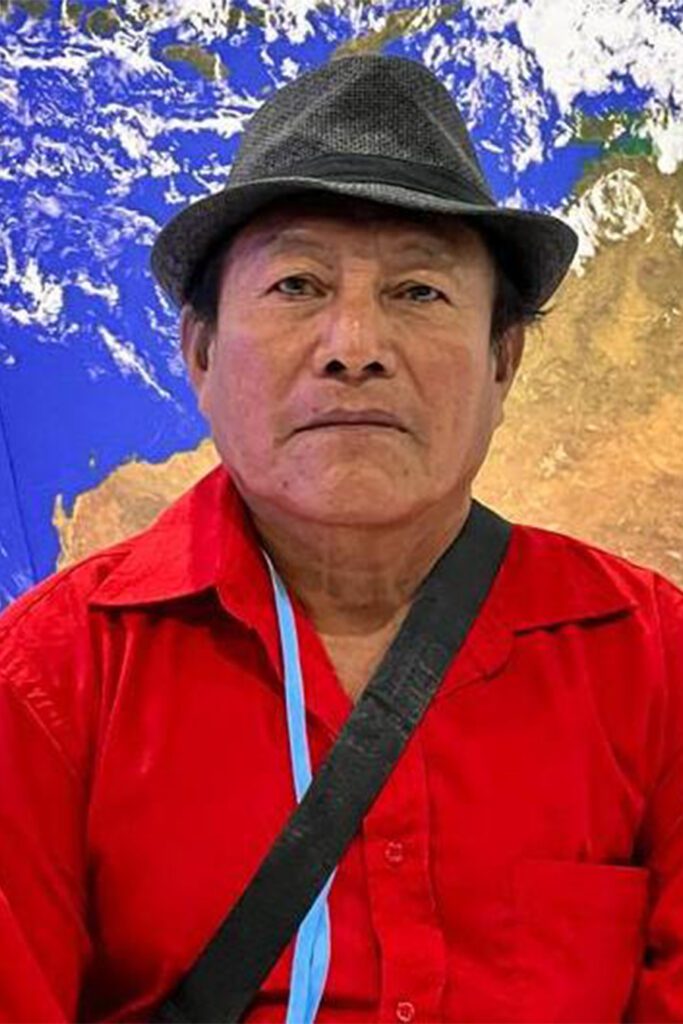

Aníbal Sánchez-Sagla Dummad
Aníbal Sánchez-Sagla Dummad of the Guna General Congress, from the community of Mandi Ugbigandub in Panama.
From a young age, he immersed himself in various Guna treaties and traditional medicine.
Holder of the title of Argar (interpreter of treaties, Bab Igar, and Guna knowledge) in the Gunayala Region, Aníbal has been serving as the Sagla Dummad for the past five years. Additionally, he holds the position of spokesperson on the Board of Directors of the Mesoamerican Alliance of Peoples and Forests (AMPB) and also for the Mesoamerican Territorial Fund.
Strategic Partners


Climate and Land Use Alliance
www.climateandlandusealliance.org
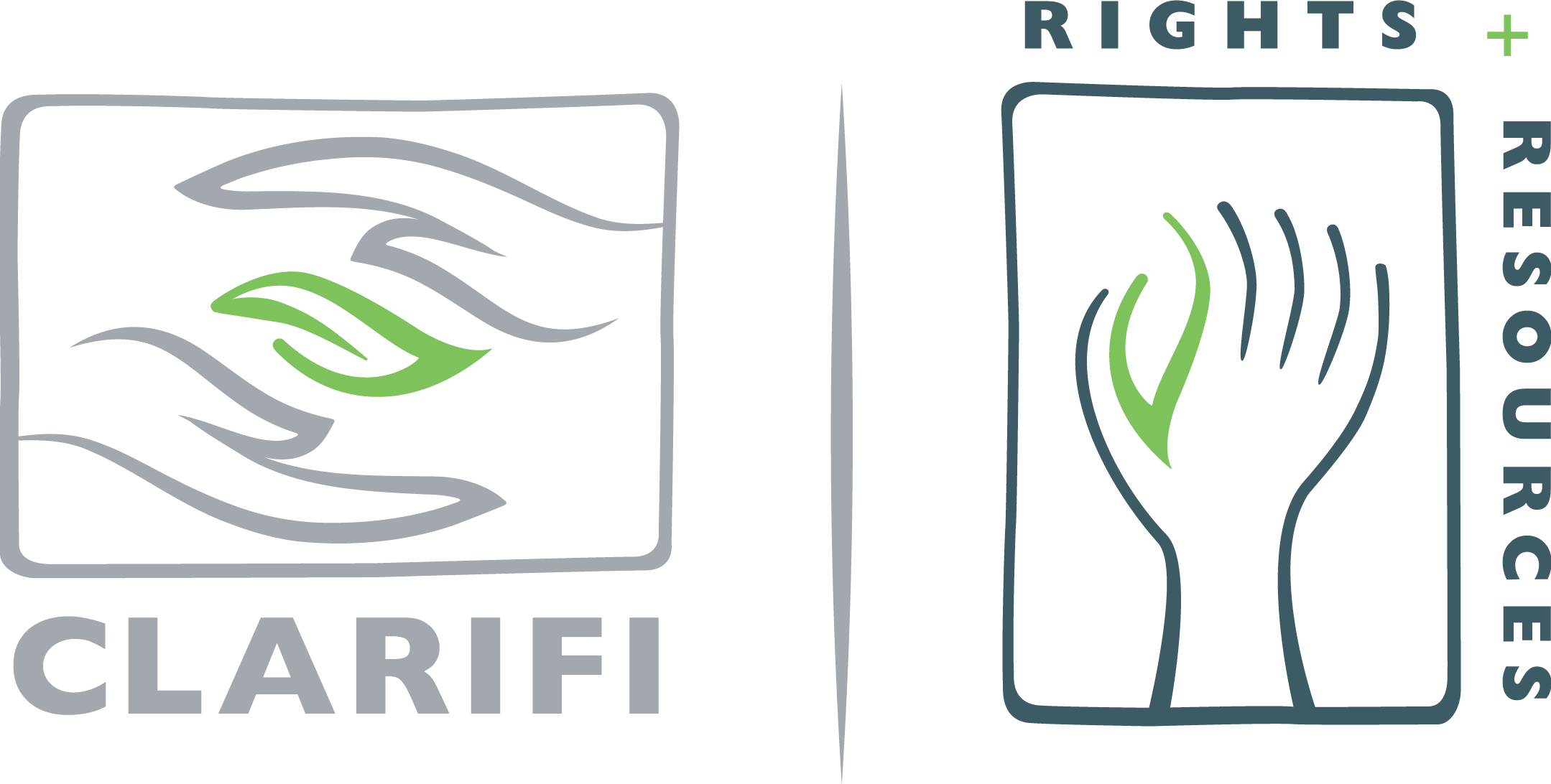

Rights + Resources
www.rightsandresources.org
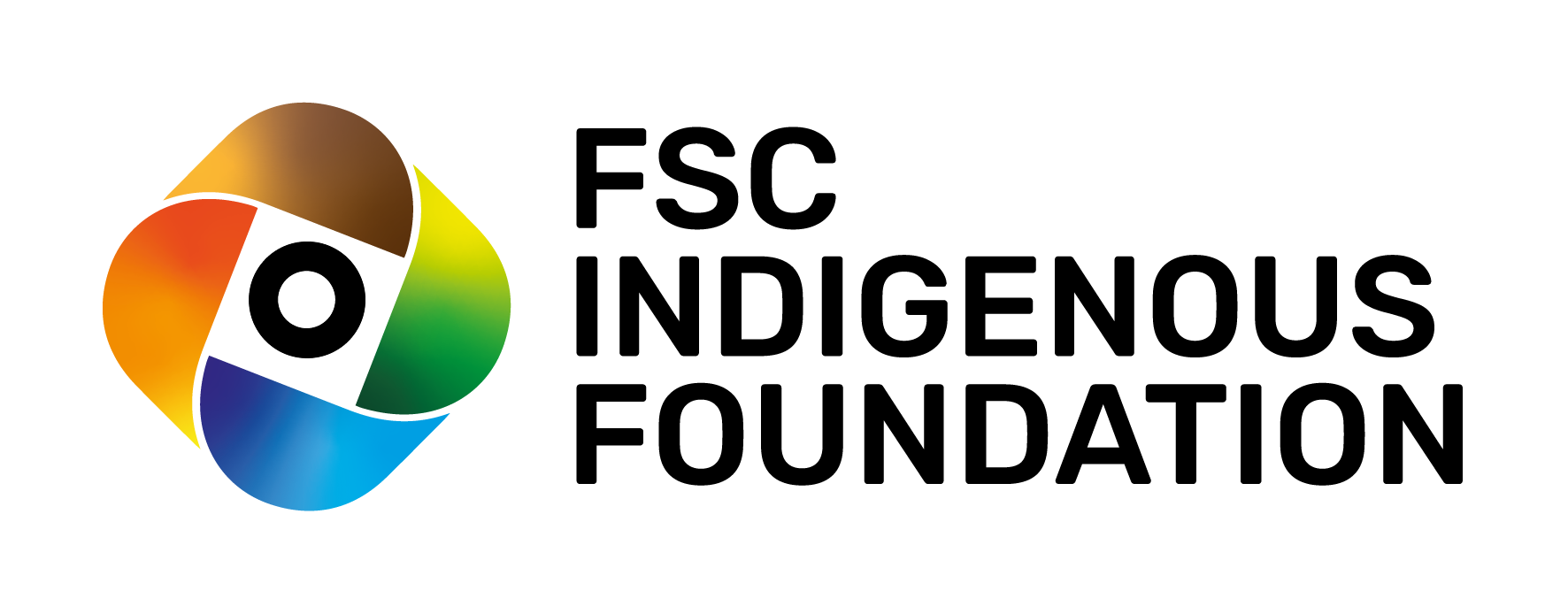

FSC Indigenous Foundation
www.fscindigenousfoundation.org


Rainforest Foundation US
www.rainforestfoundation.org



